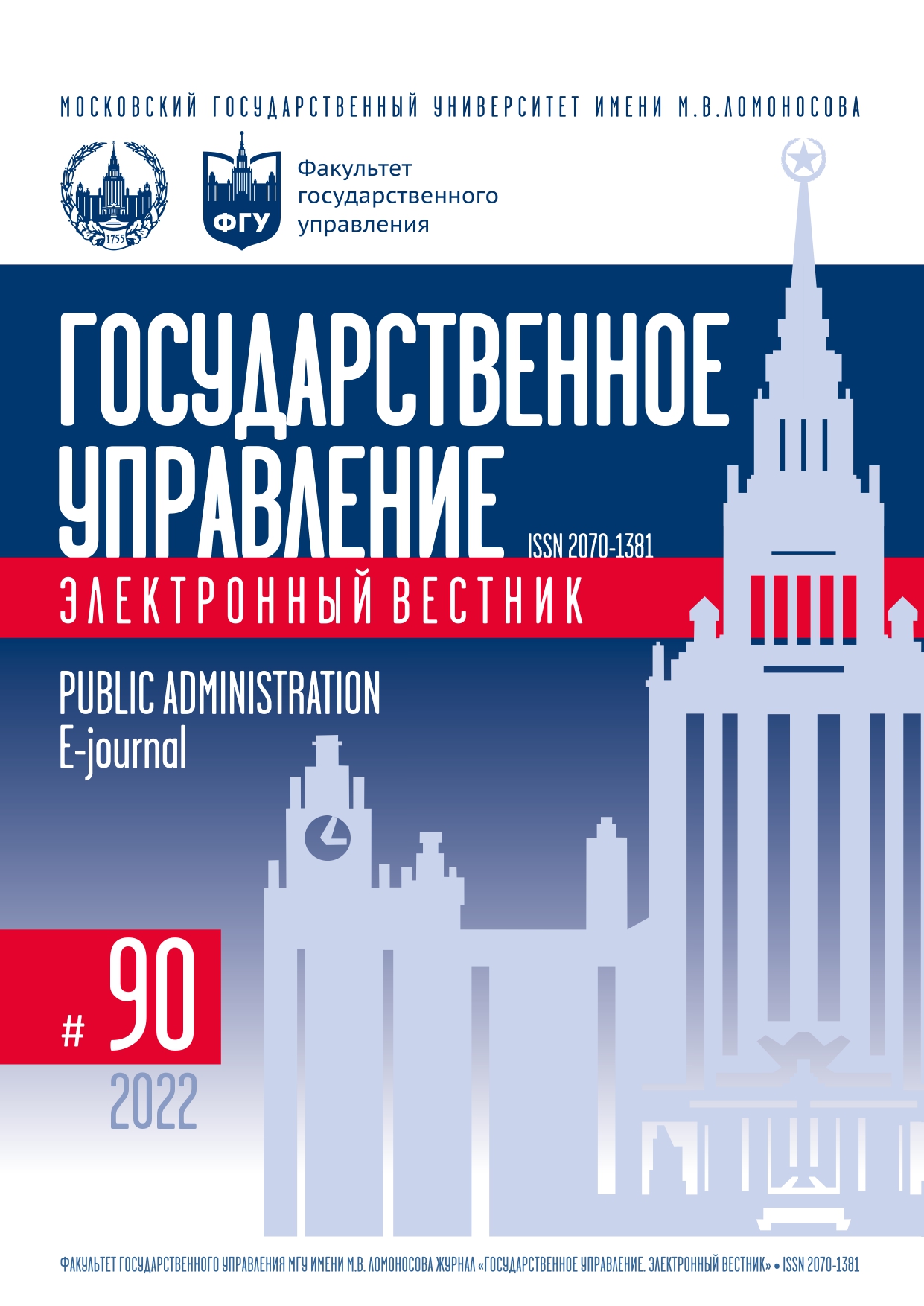On the Issue of Economic Consequences of Environmental Management Conflicts in the Baltic Sea Coastal Zone
Keywords:
Baltic Sea, Nord Stream 2, conflicts of environmental management, recreation, the principle of «polluter pays», the structure of environmental management, the method of main components, eutrophication, environmental servicesAbstract
The study is devoted to identifying internal and international conflicts of environmental management in the Baltic region and their economic consequences. Several methods were used in the work, in particular the principal component method, which allowed determining Russia’s contribution to the Baltic Sea pollution, and a SWOT analysis of the region as a recreational facility. The main cause of internal conflicts between different types of environmental management is their competition for territorial resources. The most acute environmental problems of the Baltic Sea have been identified, primarily eutrophication. The economic damage caused to the marine ecosystem and the contribution of each country to causing this damage are assessed. The above contribution determines the amount of compensation of each country for the damage caused. Russia’s contribution is determined at the rate of 15% of the contribution to the pollution of the sea as a whole. SWOT analysis of the Leningrad and Kaliningrad regions as a recreational region allowed us to identify their strengths and weaknesses for the development of tourism. The main advantages of the regions include relatively well-developed infrastructure and high recreational potential; the disadvantages are climatic features. The study identified opportunities for tourism development in these regions and threats hindering development. Opportunities include improved transport accessibility and new types of tourism, in particular cruise and environmental. Threats include a drop in the standard of living of Russians and the redirection of tourists from Russian resorts to foreign ones. As a solution to internal conflicts of environmental management, mutual concessions of types of environmental management and identification of priority areas of economic activity for the coastal zone — recreation and the functioning of seaports are proposed. In order to resolve external environmental management conflicts, additional studies are needed to confirm the available estimates of Russia’s contribution to the Baltic Sea pollution and the insignificant role of the Nord Stream 2 in this pollution. For further research, it is also important to quantify the services provided by land and sea ecosystems.
References
Бобылев С.Н., Горячева А.А. Идентификация и оценка экосистемных услуг: международный контекст // Вестник международных организаций: образование, наука, новая экономика. 2019. Т. 14. № 1. С. 225–236. DOI: 10.17323/1996-7845-2019-01-13.
Долотов Ю.С. Проблемы рационального использования и охраны прибрежных областей Мирового океана. М.: Научный мир, 1996.
Домнин Д.А., Чубаренко Б.В. Трансграничные водосборы Юго-восточной Балтики // География и природные ресурсы. 2012. № 3. С. 69–76.
Евсеев А.В. Основные подходы к классификации природопользования // Рациональное природопользование: теория, практика, образование, сборник статей. М.: Геогр. ф-т МГУ, 2012. С. 10–17.
Земцов С.П., Бабурин В.Л. Оценка потенциала экономико-географического положения регионов России // Экономика региона. 2016. Т. 12. № 1. С. 117–138.
Кабелкайте Ю.А. Экологические проблемы и международное сотрудничество в регионе Балтийского моря // География. 2003. № 32. URL: https://geo.1sept.ru/article.php?ID=200303202.
Кулаковская В.А., Санин А.Ю. К вопросу об экономической оценке экосистемных услуг, оказываемых геосистемами прибрежной зоны Балтийского моря // Государственное управление. Электронный вестник. 2021. № 86. С. 115–140. DOI: 10.24412/2070-1381-2021-86-115-140.
Митина Н.Н., Коротаев С.C. Анализ значений антропогенной нагрузки на акваторию Балтийского моря // Государственное управление: Российская Федерация в современном мире. Материалы 13-й Международной конференции факультета государственного управления МГУ им. М.В. Ломоносова (28–30 мая 2015 г.). М.: Университетская книга Москва, 2016. С. 51–58.
Митина Н.Н., Харина М.А. Проект «Северный поток»: экологические последствия проложения трассы морского газопровода по дну Балтийского моря // Государственное управление в XXI веке: традиции и инновации. Материалы 8-й Международной конференции факультета государственного управления МГУ им. М.В. Ломоносова. Москва, 26–28 мая 2010 г. М.: Изд-во Моск. ун-та, 2010. С. 330–337.
Степанова Е.В., Фрумин Г.Т. План действий по Балтийскому морю: проблема эвтрофирования // Вестник СПбГУ. Серия: Геология. География. 2009. № 1. С. 99–104.
Фрумин Г.Т., Тимофеева Л.А. Трансграничные водные объекты и водосборы России: проблемы и пути решения // Биосфера. 2014. Т. 6. № 2. С. 118–134.
Berndtsson R., Sivakumar B., Mitina N.N., Charina M.A. Baltic Sea Basin // Handbook of Applied Hydrology / ed. by Vijay P. Singh. New York: McGraw-Hill Education, 2016. P. 122-1–122-10.
Boulton A., Ekebom J.O., Mar G.G. Integrating Ecosystem Services into Conservation Strategies for Freshwater and Marine Habitats: A Review: Ecosystem Services in Aquatic Habitat Conservation // Aquatic Conservation: Marine and Freshwater Ecosystems. 2016. Vol. 26. Is. 5. P. 963–985. DOI: https://doi.org/10.1002/aqc.2703.
Drakou E.G., Pendleton L., Effron M., Ingram J.C., Teneva L. When Ecosystems and Their Services Are Not Co-Located: Oceans and Coasts // ICES Journal of Marine Science. 2017. Vol. 74. Is. 6. P. 1531–1539. DOI: https://doi.org/10.1093/icesjms/fsx026.
Lillebø A.I., Pita C., Garcia Rodrigues J., Ramos S., Villasante S. How Can Marine Ecosystem Services Support the Blue Growth Agenda? // Marine Policy. 2017. Vol. 81. P. 132–142. DOI: https://doi.org/10.1016/j.marpol.2017.03.008.
Maron M., Mitchell M.G.E, Runting R.K., Rhodes J.R., Mace G.M., Keith D.A., Watson J.E.M. Towards a Threat Assessment Framework for Ecosystem Services // Trends in Ecology and Evolution. 2017. Vol. 32. P. 240–248.
Österblom H., Crona B., Folke C., Nyström M., Troell M. Marine Ecosystem Science on an Intertwined Planet // Ecosystems. 2017. Vol. 20. P. 54–61. DOI: 10.1007/s10021-016-9998-6.

